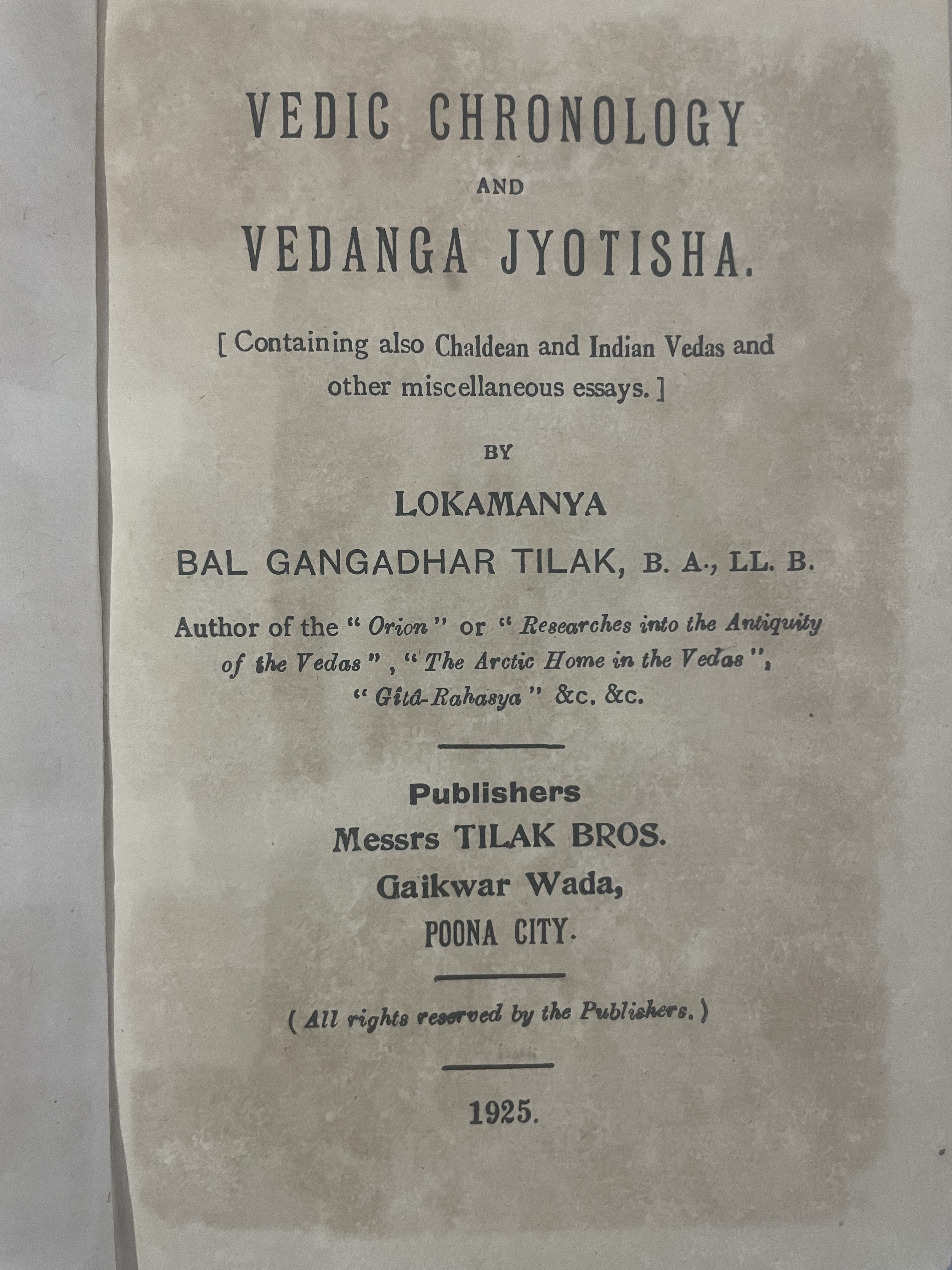Vedic chronology and Vedanga Jyotisha

About
Summary
Exquisite
TOC
Details
Related
URL
Images
Overview
Vedic Chronology and Vedanga Jyotisha is a significant scholarly work authored by Bal Gangadhar Tilak, also known as Lokmanya Tilak was published in 2012. This treatise explores the intricate relationship between Vedic literature, astronomy, and the historical chronology of ancient India. Tilak's work is pivotal in understanding the Vedic texts' astronomical references and their implications for Indian culture and history.The book is divided into several sections that discuss various aspects of Vedic astronomy, including the systems of Nakshatras (lunar mansions), the significance of celestial events, and how these astronomical phenomena were integrated into the Vedic calendar. Tilak emphasizes the importance of aligning Vedic knowledge with scientific inquiry to establish a more accurate timeline for Vedic civilization.
Importance of Book
The significance of Vedic Chronology and Vedanga Jyotisha lies in its rigorous analysis of Vedic texts through an astronomical lens. By doing so, Tilak not only defends the integrity of Indian scholarly traditions but also asserts their relevance in contemporary discussions about history and science. His work serves as a counter-narrative to colonial interpretations that often marginalized Indian contributions to knowledge.
Key Themes
Astronomy and Vedic Literature: The book delves into how ancient Indian astronomy is documented within Vedic texts, arguing for a sophisticated understanding of celestial mechanics among early Indians.
Chronological Framework: Tilak attempts to establish a chronological framework for the Vedic period, challenging Western interpretations that often underestimated its antiquity.
Cultural Integration: The work highlights how astronomy influenced religious practices and societal norms in ancient India, showcasing the interconnectedness of science and spirituality.
Cultural Significance
The book holds substantial cultural significance as it reinforces the idea that Indian civilization has a rich intellectual heritage that predates many Western historical narratives. Tilak's exploration of Vedic astronomy provides insights into how ancient Indians understood their world, which is crucial for appreciating the depth of Indian philosophy and science. This work has inspired subsequent generations to explore their cultural roots and has revitalized interest in traditional Indian sciences.
Effects on Society
Tilak's work has had a profound impact on Indian society, particularly in fostering national pride during the independence movement. By emphasizing India's ancient achievements in science and philosophy, he contributed to a broader cultural renaissance that sought to reclaim India's historical narrative from colonial perspectives. This has encouraged modern scholars and enthusiasts alike to engage with Vedic texts critically, leading to a resurgence in studies related to Indian astronomy and its applications.
Conclusion
Vedic Chronology and Vedanga Jyotisha by Lokmanya Bal Gangadhar Tilak is more than just an academic treatise; it is a vital contribution to understanding India's historical and cultural identity. By bridging the gap between ancient wisdom and modern science, Tilak not only defends the legitimacy of Vedic knowledge but also inspires future generations to explore their heritage with pride. The book remains a cornerstone for those interested in the intersections of astronomy, history, and culture within the context of ancient India.
Title
Vedic chronology and Vedanga Jyotisha
Author
Lokmanya
Name of Publisher
Ullan press
Publish Date
2012
Vintage
2001-Present
Category
Literary
Sub Category
Hindu Studies
Rarity
Normal
